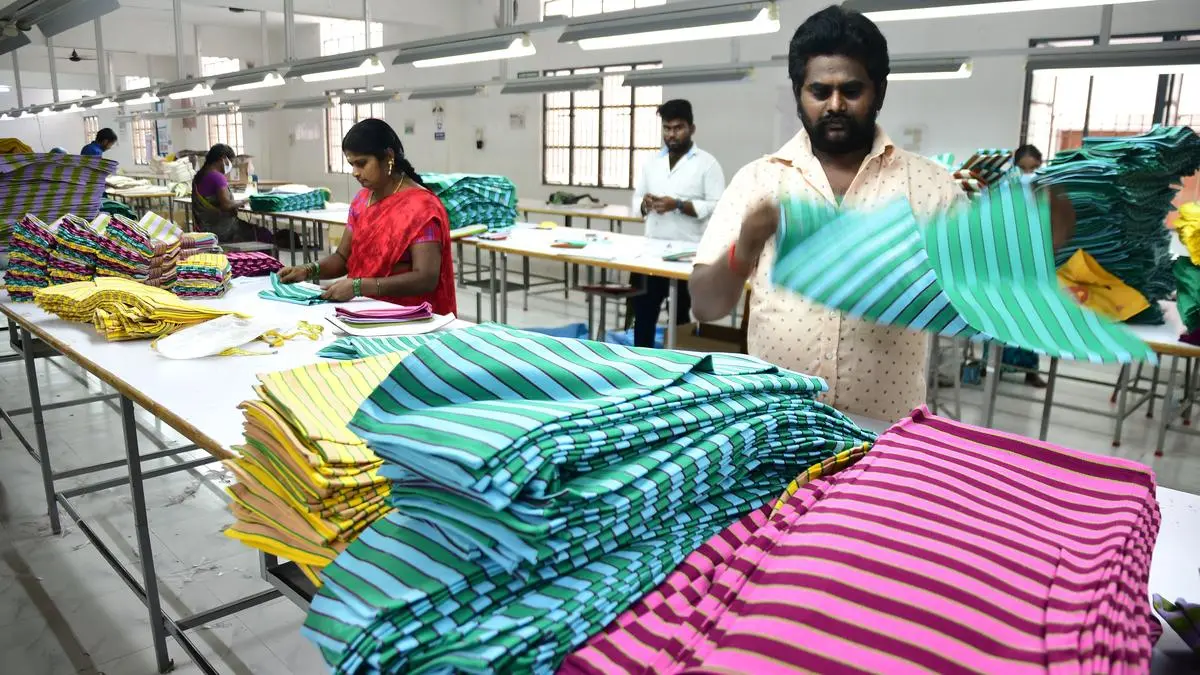[ad_1]

India continues to ramp up capacity by attracting new investments in the sector.
| Photo Credit:
Siva SaravananS
The India-UK free trade agreement, signed on Tuesday, will boost textile and clothing exports to that country by bringing down the duty to nil from 12 per cent and compete with other Asian countries for a larger share of business.
At present, Bangladesh enjoys certain advantages in the global textile and clothing trade due to its large production capacities and duty-free access to strategic markets such as the European Union and the United Kingdom.
In contrast, Indian exports to these markets have faced tariff barriers ranging from 8 per cent to 12 per cent, making Indian products less price-competitive compared to those from Bangladesh, Pakistan, Turkey, and Vietnam.
India currently accounts for 7 per cent of the UK’s textiles and clothing imports, while Bangladesh holds 15 per cent share. The gap is expected to narrow significantly over the next three years with tariff parity now in place and India continues to ramp up capacity by attracting new investments in the sector.
Being a low margin business, tariffs play a crucial role in determining the market access for textile and clothing exports. Siddhartha Rajagopal, Executive Director, the Cotton Textiles Export Promotion Council said the zero tariffs for Indian textile and clothing exports is expected to create a level playing field for Indian exporters, on par with other South Asian suppliers who already enjoy duty-free access.
India’s vertically integrated textile value chain, skilled workforce, and commitment to sustainability and ethical manufacturing are increasingly aligned with the sourcing priorities of UK buyers, he added.
When compared to some competitors like Bangladesh or Vietnam, India still faces relatively higher logistics, labour and compliance costs, but the ongoing reforms and government incentives—such as the PLI scheme, RoDTEP, and RoSCTL—are steadily improving cost structures and operational efficiency, he said.
Suresh Nair, Indirect Tax Partner – Consumer Products and Retail, EY India said that while the FTA will be a game-changer for textiles sector, addressing raw material costs and meeting environmental/ regulatory compliances will be critical to maximising gains.
Shaleen Toshniwal , Chairman of Manmade and Technical Textiles Export Promotion Council (MATEXIL) said India and UK, the world’s 5th and 6th largest economies, aim to double bilateral trade to $100 billion by 2030.
To capture a larger share of the UK market, India must leverage the inherent advantage of a vertically integrated domestic supply chain to offer speed and flexibility in delivering orders, he added.
While the government has fulfilled its role, he said it is now incumbent upon the industry to produce products that are relevant and appealing to the UK consumers in order to fully leverage the benefits of the zero-duty.
Published on May 7, 2025
[ad_2]
Source link


